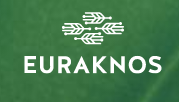An expert online workshop on agroforestry was held on 16.12.2020., within the framework of EURAKNOS project. The event was organized by the National Agrarian Chamber, the Forest Research Institute, the Cooperative Research Center of the University of Sopron, and Zsörk Foundation. The whole informational network was represented on the event: practitioners, farmers’ advisers, researchers, NGOs, colleagues of the Agrarian Ministry.
In the morning session participants had the occasion to get familiar with AFINET and EURAKNOS projects’ purposes, the results of the introduction of measure 8.2, and general policy guidelines regarding agroforestry in Hungary. As a very interesting outlook, we could see the presentation of an informal knowledge-sharing network on complex agroforestry systems – as an example and an alternative. The Czech participant presented AGFOSY Erasmus+ project and gave an insight to Czech agroforestry strategy which was an inspiring example to hear.
In the afternoon session speakers, guests and participants engaged in a semi-structured conversation exploring five areas within the main topic of scaling up agroforestry in Hungary.
- Sustainability of complex agroforestry systems in an unfavourable global (economic and social) environment
- Knowledge and information need of different actors in the network
- Is there a need for “innovation brokers” and what qualities should they have
- Agroforestry and innovation in agricultural education
- Agroforestry lobby in Hungary
Perhaps not surprisingly, conversation circled mainly around subsidizing schemes and regulations. It is certainly an important factor that affects the spread of agroforestry practices. It was an interesting – though not surprising – finding that agroforestry does not have a strong, organized advocacy engaging a wide range of experts in Hungary. There is a lot to do in this area, and representants of the Ministry during the event expressed willingness to receive information and suggestions. The Czech example showed that it is possible to build meaningful working relations with decision makers, and it is possible to include agroforestry in a national strategy for the future of agriculture.
Informational networks and knowledge sharing proved to be – again, as always when investigating factors on similar events – an absolutely crucial point in scaling up agroforestry practices. A fruitful exchange of experiences between farmers is just as important as a real and effective cooperation between researchers and practitioners, and a very much needed dialogue between experts and farmers from one side, and decision makers from the other. It is indispensable to have a supply of professionals with appropriate approach and knowledge to support farmers, so the inclusion of agroforestry and sustainable, innovative practices in agricultural education should be a priority.
I would highlight two lessons learnt during the event:
If we emphasise complexity regarding agroforestry systems, it is far less obvious, how systems with several components, a diversity of species can gain momentum in agriculture. Complexity is the most complicated to subsidize and build into larger structures or wider strategies; while, from an ecological point of view, that kind of systems could provide meaningful answers to ecological challenges.
Subsidising systems, support schemes, market opportunities and official administration are all embedded in a larger structure of global trends. Farmers operate in an environment determined by these structures. A long-needed paradigm-shift in land-use practices is only possible by a profound change of attitudes, which is the greatest challenge to achieve, and a really long-term mission.
Judit Csikvari












